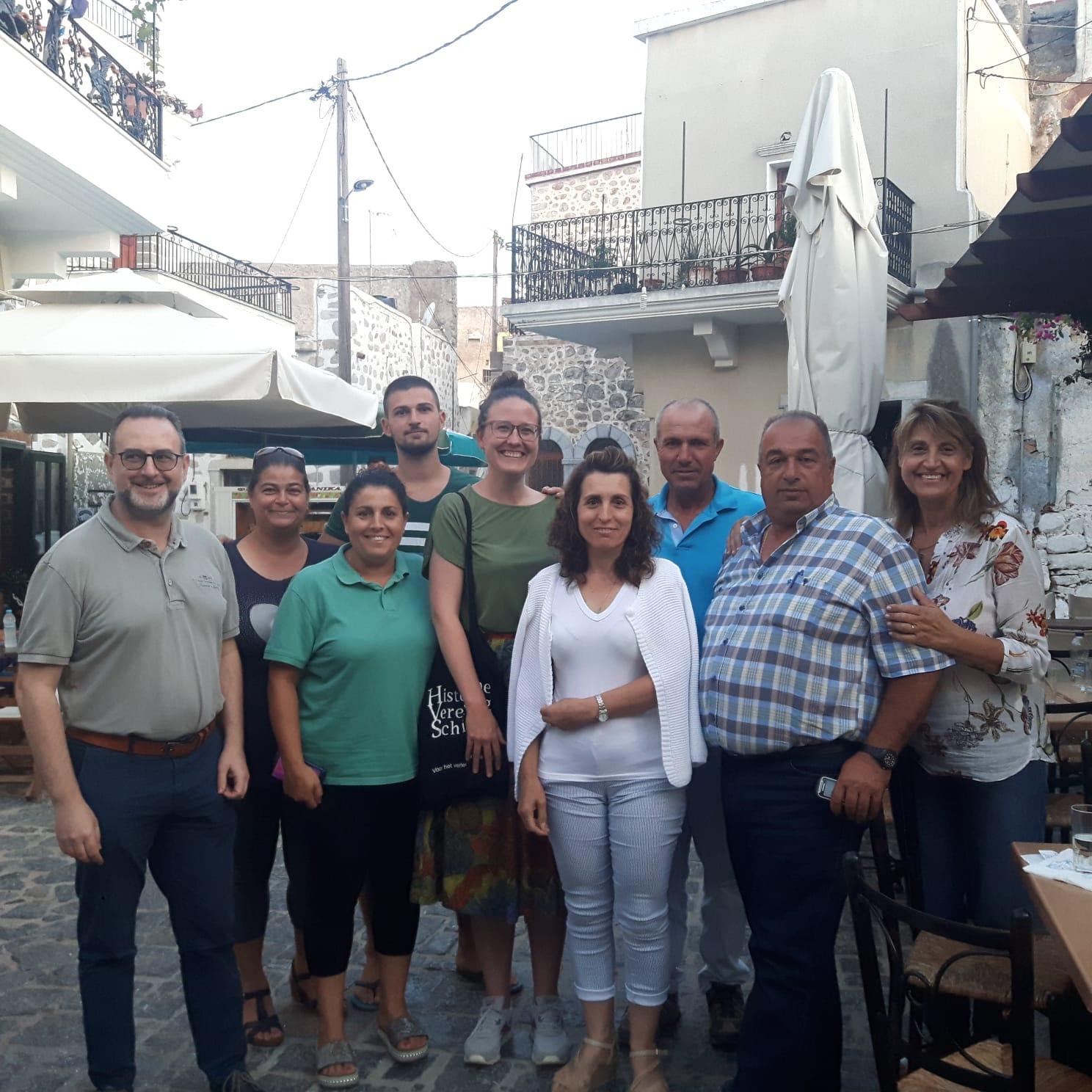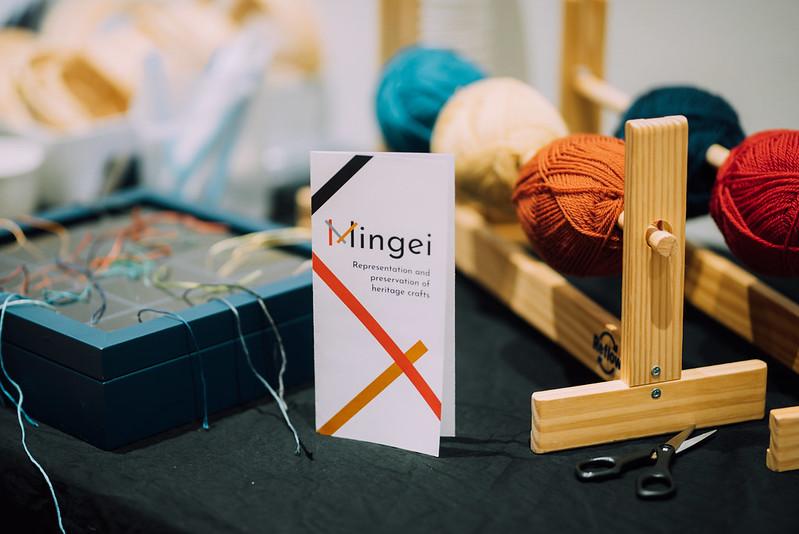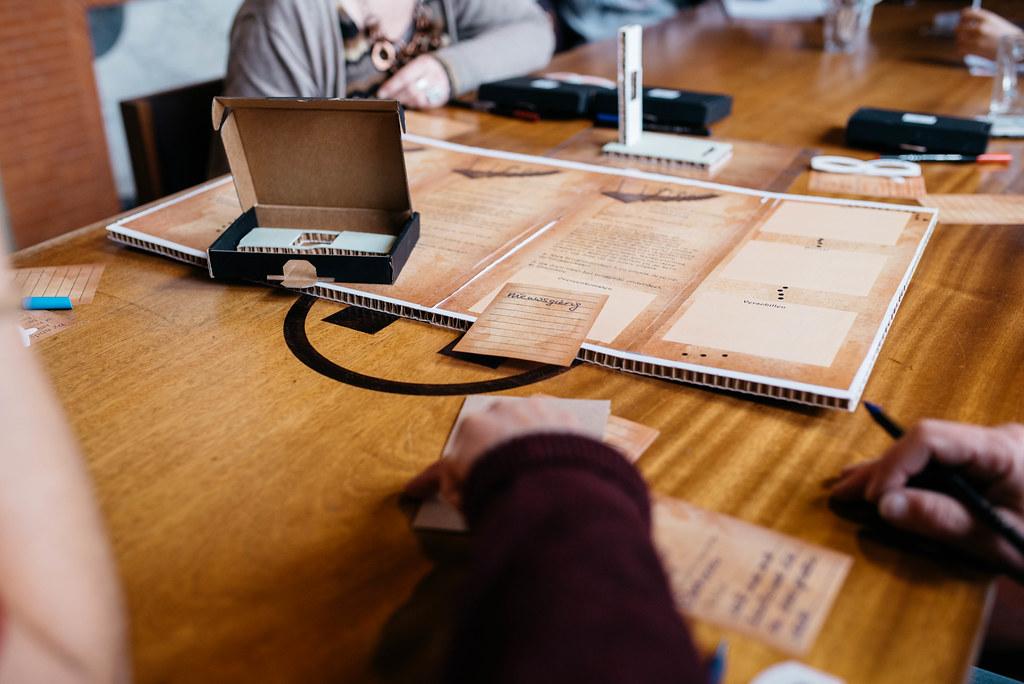The southern part of the Greek island Chios is the only place in the world where mastic can be cultivated. The combination of the soil, the climate and the cultivation techniques of the people of Chios ensures that the Pistacia lentiscus tree produces enough of its unique aromatic resin to harvest it. The mastic resin is used in food, cosmetics and medicine. Mastic cultivation goes way back, and has always ensured the islanders income and a certain status. So far, Chios never had the need to develop mass tourism; but recently they started to develop what they call ‘thematic tourism’ and eco-tourism.
The Mingei project explores the possibilities of representing and making accessible heritage crafts, both its tangible and intangible aspects. Mingei considers mastic cultivation to be a heritage craft, and chose it as one of its three pilots. Therefore, the cultivation and the rituals and culture around the practice is researched and captured. The project uses new technologies (such as motion capture and 3-D scanning) to capture the craft. But, also a well-known, ancient method of knowledge transfer: conversations in a taverna on the village square! Waag played a role in facilitating the latter, when we were on Chios in September.
Waag is the expert partner in the field of co-creation in the project team. In that capacity we were invited to come to Chios two days prior to the official project meeting, to work together with project partner Pireus Bank Group Cultural Foundation (PIOP) and their local partner The Chios Mastic Museum. PIOP’s role in the project is to gather data on mastic’s heritage craft aspects, and develop concepts for a possible local (museum) experience of the heritage craft. Concept development is done in co-creation with all the stakeholders involved.
PIOP (based in Athens) engaged many stakeholders, through their local partner the museum as well as the Chios Mastiha Growers Association. The association connected PIOP to mastic growers in the villages. Additionally Waag invited Dr Eleni Maloupa to join us on Chios, and support PIOP in co-creation. We worked with her in the project Big Picnic. She is a botanist and the director of the Balkan Botanic Garden of Kroussia. In Big Picnic we were also the co-creation expert partner, and we trained around forty people working in botanical gardens. Eleni became an ambassador of co-creation. Additionally, Eleni brought very special expertise to Mingei: she was born and raised on Chios. Her family and other families in her village Elata, still work as mastic growers, and she knows a lot about its heritage. Eleni showed us Chios and because of her we had access to the growers, their tavernas, their fields and their stories.
PIOP hosted a co-creation session at the museum to come up with ideas on how outcomes of Mingei could be helpful for thematic- and eco-tourism on the island. The museum is one of the main tourist attractions on the island, and will be the main location where output from the Mingei project would be visible. It was therefore important to understand the needs of museum, and get insights from the local tourism professionals.
PIOP had invited the main stakeholders, and Eleni – native to the island, to join us in this session. With the help of a big paper map of the island, Lego, and coloured pens several ideas came to live; and PIOP gathered lots of input.
Unbeknownst to us Eleni had done some work in Elata, the previous evening. At the end of the session she invited all of us to come that same evening to join the growers on the town square for a drink. That invitation was kindly accepted by researchers and technical developers from Milan, the project coordinator form Crete, PIOP and ourselves.
Eleni picked us up at the edge of the village and guided us through the picturesque mountain town. As we reached the town square the entire village had gathered to welcome us. The growers, men and women, young and old, were all there. All of us were spread around two tables, making sure to patron both taverns. Those who spoke both Greek and English were evenly spread out.
The growers were pleasantly surprised that we were so interested in mastic, the tradition that had been passed down to them for many generations. They were eager to share their knowledge and experience. They discussed their concerns about the prices they receive per kilo mastic, and the fear of the rain in harvest season. They showed their tools, and assured is it was hard work, but ‘not too bad’. One of the young growers told us: ‘In August we go out in the field very early in the morning, before it gets too warm, and then after we harvest, we have time to go to the beach.’
After the many stories and details about their work, a table with home-made souma (a strong drink made of distilled figs), olives and veggies from around Elata was prepared for the guests. We shared drinks and snacks with a smile on our faces. Sometimes serious field work takes fun turns!
A full report on the consortium meeting and all other activities on Chios by the project team can be found here.


